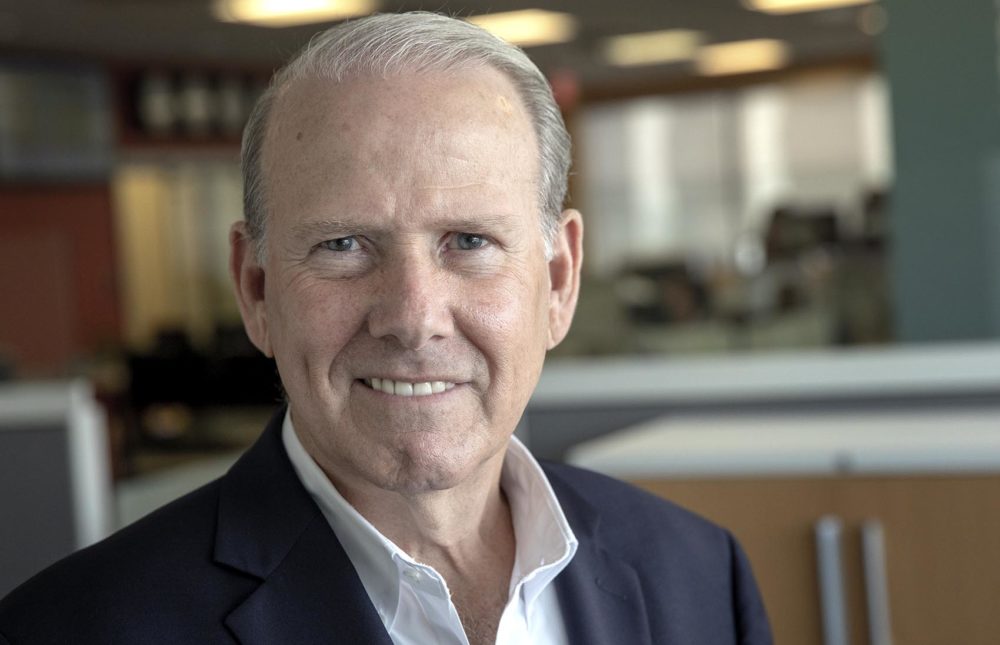Advertisement
Boston Housing Authority's Chief On Integrating Public Housing And BHA's Needs Going Forward
Resume
Bill McGonagle, administrator for the Boston Housing Authority, retired in July after working with the agency for 40 years.
He started there as a janitor in the 1970s and has been the head since 2009, when he was appointed by Mayor Thomas Menino. The Boston's Globe's Adrian Walker described him as "the landlord for Boston’s poorest residents."
We speak with him about his career, his reflections on the authority's efforts to integrate public housing, and the biggest needs of the BHA going forward.
Interview Highlights
On growing up in public housing
I grew up in public housing in Boston, in the Mary Ellen McCormack housing development over in South Boston. [It's the] first public housing development built in New England. So I've had an interest in public housing and public housing advocacy literally from the day I was born.
And I've always had a desire to help people. I thought that the best way to accomplish that goal is by working on behalf of the poorest and most marginalized people in the city of Boston.
On receiving credit for helping integrate Boston public housing
I had a visible role in that effort but ... I don't want to take too much credit. I think the the real heroes of that integration effort were Bessie Payne and Liz Clinkscales, who were the first two families of color to move in to [a predominately white Boston housing development]. They were the ones that took the most risk, quite frankly. And they were the ones that were the pioneers, and took the chance to move themselves and their families into a community where, in some instances, they were not terribly welcome.
In my experiences with [integration] efforts, at least within the public housing communities, is that although there were some terrible incidents — some racist incidents — there were hundreds, even thousands of of positive interactions, that I saw and witnessed each and every day.
On the proposal to provide Section 8 housing recipients money that's tied to the cost of living in the community where they live
The current funding arrangement is that one fair market rent [is set]. Obviously setting the same rents for Newton on the same subsidy for a voucher holder in Lynn or Dorchester does not make any sense. The fair market rents and the rental markets in those neighborhoods are very different. The way it has been set up for years is these subsidies for our voucher holders did not provide enough funding to rent in those [more expensive] neighborhoods. We've made some significant adjustments to allow our voucher families to economically compete with the rental market in those cities and towns.
Poor folks ought to have some choices about where they want to live and raise their families, just like folks with significant economic means. The current arrangement of one [fair market rent] and one size fits all has basically segregated [Boston], and poor folks are concentrated [in] poverty.
"It is time for the federal government to re-engage and to step up to the plate -- to commit some financial resources to the development of affordable housing in Boston, Massachusetts and throughout the country."
Bill McGonagle, BHA
On working with public housing residents
It never ceases to amaze me ... how our families are able to make do. ... I am always amazed at how creative our families are in providing for their families. It clearly has to be, and is, an economic struggle.
The cost of living in Boston is going up. I do think that the BHA is following a path of redevelopment that will preserve all of the deeply affordable units that we have. But it is still a struggle to keep up. One of the things I would suggest is that it is time for the federal government to re-engage and to step up to the plate — to commit some financial resources to the development of affordable housing in Boston, Massachusetts and throughout the country. They have retreated. They are running away from adequately funding the public housing program.
On the funding situation for public housing
The vast majority of the public housing in Boston is federally subsidized. There's a formula that [the Department of Housing and Urban Development] actually established what a housing authority would need to adequately operate their properties. This is the minimum amount of money that the federal government says a housing authority would need to adequately operate on a day-to-day basis. We have not been funded at that level that the federal government says we need in decades.
On the relationship between homelessness and housing in Boston
I believe this city and this mayor is doing everything they can do within the confines of their limited budget. We cannot let the federal government off the hook. We cannot continue to point the finger locally. We got to start looking down 600 miles south of Boston to what's going on down in Washington, D.C., and what they are doing — or not doing — to provide adequate funding for affordable housing and public housing in this city and in this country.
On what he hopes his legacy is
I hope my legacy is one of inclusion — someone who made a sincere effort to open up the public housing in the city to residents, applicants [and] those in need of housing of every racial and ethnic background. And that I empowered residents, listened to them and brought them to the table when it came time to make decisions.
This article was originally published on July 17, 2019.
This segment aired on July 17, 2019.

